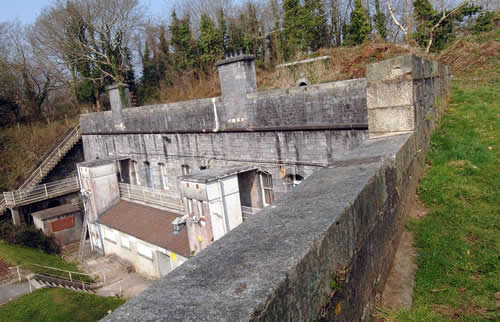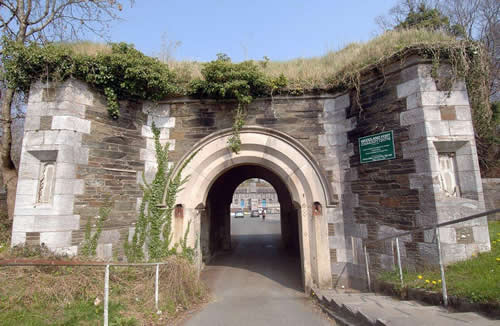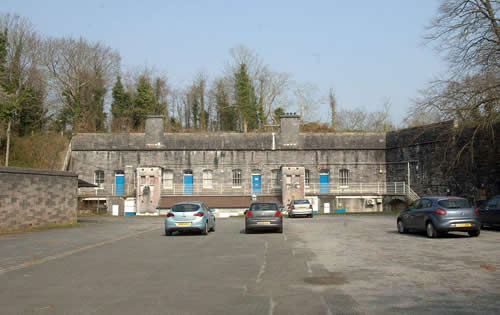PALMERSTON FORTS
Tucked away offset from Plymouth’s Crownhill Road is Woodland Fort. If you are driving and don’t already know it is there then you would most likely miss a piece of
Woodland Fort is one of the city’s 19th century Palmerston Forts, a series of forts and batteries built to defend against a French invasion that never materialised.
Today it is surrounded by mature trees rather than invaders so its planned lines of fire are obscured and its guns long gone.
In recent years the forts have been used for a variety of purposes from vehicle testing depots to community centres. English Heritage is currently working with Plymouth City Council on a study of their potential uses and how to best bring these scheduled ancient monuments into productive use within the community.
Andrew Vines, English Heritage’s South West Planning Director, said: “Woodland Fort already serves as a community centre. It has a number of structural features that require maintenance which is beyond the resources of the tenants. There are also a number of post nineteenth century structures that detract from the authentic character of the fort and the feasibility of their removal is being considered. Some of the earlier buildings need restoration and we are going to be looking at what can be put to practical use for the future.”

He adds, “Many of Plymouth's Palmerston Forts have suffered deterioration over the past 150 years and as a result they have been included on English Heritage’s, Heritage at Risk Register, making them a priority for our engagement. Although most of the forts have some use at present, many are under-used and some don't have the prospect of a long-term sustainable use.

“In particular, finding ways for the forts to have a higher profile within their local communities, whilst generating the revenue necessary to meet their conservation needs, is a goal for both English Heritage and Plymouth City Council. The study we have funded is designed to address this."

As part of the project members of the public were last week asked to make suggestions for regeneration through the Council’s ongoing Sustainable Neighbourhoods consultation. The author of the report, Barry Woodfin of research company Scott Wilson, was on hand to talk to residents at St Budeaux Library.






